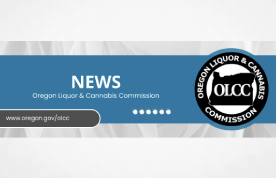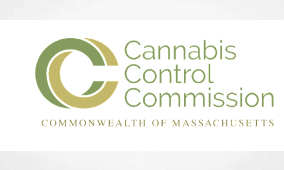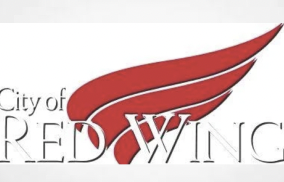Article by Joseph J. Pangaro, Justin M. L. Stern, David E. Landau, Seth A. Goldberg and Michael S. Zullo
On Wednesday evening, September 25, by a vote of 321 to 103, the United States House of Representatives took a meaningful step toward easing federal restrictions that have limited the access of cannabis businesses to banking services notwithstanding the growth of the cannabis industry by passing the Secure and Fair Enforcement Banking Act of 2019 (“SAFE Banking Act”). The public safety concerns resulting from the dearth of cannabis banking has led dozens of state Attorneys General, the American Banking Association, and numerous other voices to urge the passage of legislation like the SAFE Banking Act so that the U.S. cannabis industry, which now exceeds $10 billion in annual sales revenues, not to mention hundreds of millions in state tax revenues, will benefit from the same banking services – checking accounts, payroll, and credit cards, to name a few – that are common to virtually all other U.S. businesses. Passage of the SAFE Banking Act in the Senate would be liberating for the cannabis industry, as banking services will stimulate even more growth and better business practices, while eliminating the overhang of public safety concerns relating to large cash transactions. Below is: (i) a brief summary of the history leading to this point; (ii) the key provisions of the SAFE Banking Act of 2019; and (iii) a preview of what comes next.
History of Marijuana Regulation and Banking Implications
- Controlled Substances Act (“CSA”):1 Marijuana is a federally unlawful Schedule I drug under the CSA, 21 U.S.C. § at § 841(a), and direct and indirect (conspiracy and aiding abetting) violations carry stiff criminal and civil penalties, including forfeiture. at §§ 841(b), 853.
- Bank Secrecy Act (“BSA”) and Money Laundering Control Act (“MLCA”): The BSA and MLCA obligate banks to root out financial transactions involving “unlawful” activities and thus banks must comply with BSA reporting requirements for suspicious transactions and must have robust customer diligence and MLCA programs.
- 2014 FinCEN2 Guidance: In an effort to stimulate cannabis banking, FinCEN issued Guidance in 2014 that clarified BSA expectations of financial institutions by describing how financial institutions can provide services to cannabis businesses consistent with their BSA obligations. This Guidance included stringent customer due diligence obligations and a special category of suspicious activity reporting (SAR) for marijuana-related businesses. The 2014 Guidance created three types of marijuana SAR filings: (i) “Marijuana Limited”; (ii) “Marijuana Priority”; and (iii) “Marijuana Termination.”
Reluctant Banking and Public Safety Concerns
Notwithstanding FinCen’s Guidance, the CSA, the Bank Secrecy Act, and the MLCA have presented significant obstacles for banks interested in providing their services to cannabis companies that “touch the flower” and even companies that provide ancillary services to the cannabis industry. Most financial institutions, including commercial banks, investment banks, and insurance companies, have avoided the core and ancillary cannabis companies. For example, FinCen last reported that as of March 2019, only 633 of the 8,700 FDIC insured or supervised financial institutions are servicing marijuana-related business.
This widespread abstention has had a significant impact on the cannabis industry. An overwhelming portion of the $10 billion plus cannabis industry is comprised of cash transactions — purchases are made in cash, employees are paid in cash, accounts payable, including rent and other bills are paid in cash, even state taxes are paid in cash. Cannabis businesses may not have checking accounts or payroll services, cannot process credit cards, and are forced to find private lenders at high interest rates.
Public safety is at risk due to the volume of cannabis cash that is going untracked by the U.S. banking system. There is an increased risk of theft, and there have even been claims for ransom and violent crimes. Businesses may not carry enough insurance for their premises and products. Accurate record-keeping, accounting, and the calculation and payment of state and local taxes is challenged. Most importantly, the transparency objectives of the BSA are undermined, as cannabis companies often engage in corporate structuring intended to provide some access to banking, even if not directly. In addition, it is widely understood that some FDIC banks simply turn a blind eye, and provide services to cannabis businesses without reporting.
Key SAFE Banking Act Provisions
Although the SAFE Banking Act contains numerous important provisions, below are three of the most significant.
SAR Filings
The SAFE Banking Act does not do away with the requirement to file SARs. However, it does mandate that FinCEN issue revised guidance concerning SAR filings that “is consistent with the purpose and intent of the SAFE Banking Act of 2019 and does not significantly inhibit the provision of financial services to a cannabis-related legitimate business or service provider in a State.”
Protections for Financial Institutions
Further, the SAFE Banking Act would protect financial institutions against adverse actions by federal banking regulators—such as limiting or terminating the insurance provided under the Federal Deposit Insurance Act or the Federal Credit Union Act—taken solely on the basis of the financial institutions’ provision of banking services to cannabis businesses operating in accordance with state law or their service providers. The bill also prohibits regulators from discouraging institutions from providing financial services to such businesses or from incentivizing banks or credit unions to refuse, terminate, or downgrade accounts held by those engaged in the cannabis industry (such as owners or employees of cannabis businesses). Similarly, the bill provides that banks or other financial institutions providing financial services to legitimate cannabis businesses in states or jurisdictions where the cannabis business is lawfully operating will not, because of their dealings with such cannabis businesses, be held liable under federal law either for providing the financial services or for investing income derived from the provision of such services. The result of these protections is that financial institutions would, under the SAFE Banking Act, be able and thus more willing to provide cannabis businesses with routine services that companies in other industries take for granted, i.e., the processing of credit card transactions, the maintenance of operating and payroll checking accounts, etc.
Protections for Ancillary Businesses
The bill also provides protections for so-called “ancillary” businesses; under the SAFE Banking Act, receipt of money by a legitimate business or service provider, through a transaction with a cannabis business, would not on that basis result in the ancillary business’ violation of 18 U.S.C. §§ 1956 and 1957, concerning transactions involving the proceeds of illegal activity. This protection would extend to ancillary business service providers such as accountants, lawyers, bankers, and landlords, as well as to sellers of goods or services to cannabis businesses, such as cable and internet providers.
Conclusions – What to Expect
Having passed the House, the bill now moves to the Senate where, despite its bipartisan support, its fate is unclear. Senator McConnell, the Senate Majority leader who was instrumental in the passage of the 2018 Farm Bill, has not shown much interest in the bill yet. Yet Senator Crapo, Chairman of the Banking Committee, however, has hinted he may be interested in the legislation. Given the strong vote count with which the House passed the bill, pressure may start to mount for Senate action, particularly in light of the broad based coalition that came together to pass the House bill. The Senate should have the very real public safety concerns resulting from the dearth of cannabis banking in plain view when it votes.
Footnotes
1 21 U.S.C. § 801 et. seq.
2 Financial Crimes Enforcement Network
Disclaimer: This Alert has been prepared and published for informational purposes only and is not offered, nor should be construed, as legal advice. For more information, please see the firm’s full disclaimer.
Source: http://www.mondaq.com/article.asp?articleid=856514&email_access=on



















